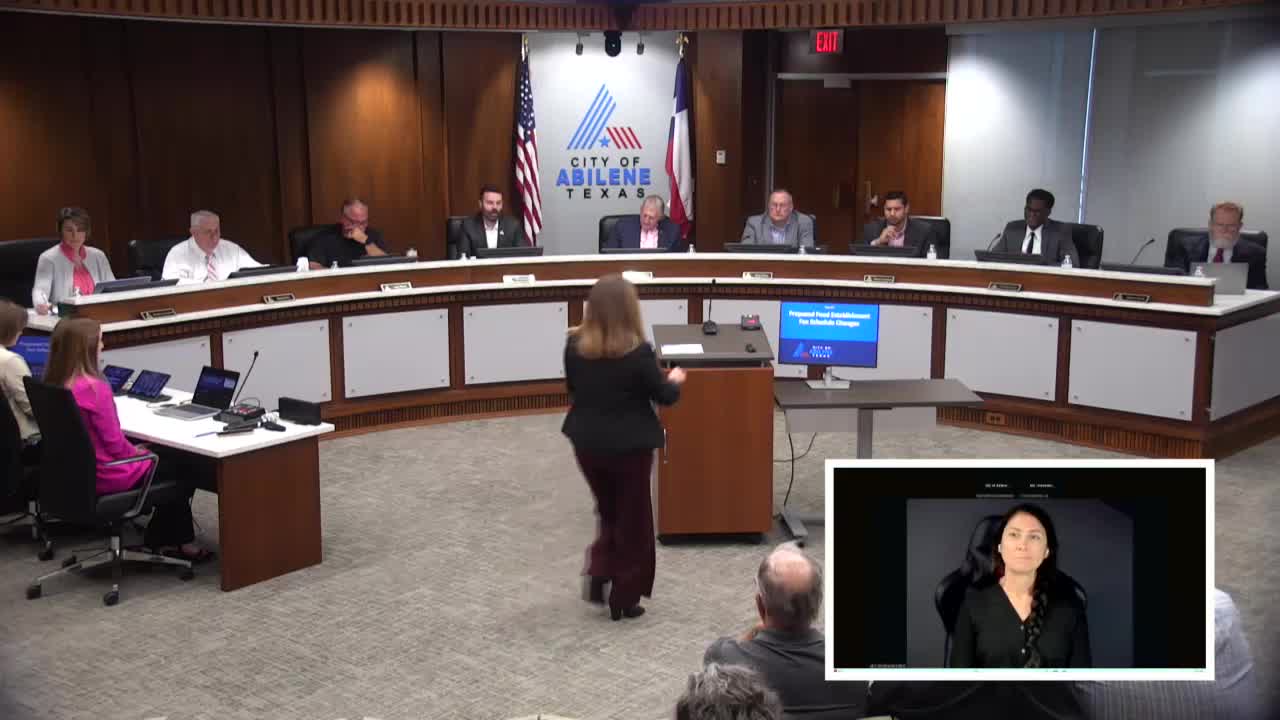Council approves 10% city fee increase for food establishments as state law shifts some inspection authority
Get AI-powered insights, summaries, and transcripts
Subscribe
Summary
Abilene’s city council approved a 10% increase in local food establishment fees after health staff warned state law limits local fee authority and mobile food unit permits will shift to the state, creating a projected net revenue shortfall.
The Abilene City Council voted to increase local public-health fees for food establishments by 10% after a staff presentation explaining recent state legislative changes that limit some municipal fee authority and transfer the permitting role for mobile food vendors to the state.
Annette Lerma, director of public health, told the council the change is prompted by recently passed state laws and rule changes. She said Senate Bill “10 o 8” limits fees a city may charge unless those fees match state fees and that House Bill “28 44” will move regulation of mobile food vendors to the state effective July 1, reducing local permit revenue.
Lerma said the city currently estimates a revenue loss of about $34,500 from the transfer of mobile food unit fees. She said the proposed 10% increase in other food establishment fees is estimated to generate $14,007.75, leaving a net shortfall of roughly $20,500 compared with current collections. Lerma said if the city instead matched the state fee schedule it could collect an estimated $137,000; a 25% increase would nearly recover the expected loss.
Council members asked whether the fee change would be revisited during the annual budget process and whether large cost changes would come back to council; Lerma said the department reviews fees annually and significant adjustments would be presented in future budget cycles.
In public comment Tammy Fogel and others questioned whether the city should raise fees for day cares and nonprofit kitchens when the state is taking over mobile food inspections and whether the city should wait to see how the state implements rules before altering local fees. Lerma said the state has not provided new funding for the work and officials expect the state to seek partnerships with local jurisdictions; she said the city would continue to evaluate impacts after the state rules take effect.
The council approved the fee change after the public hearing. Staff will register the revised fee schedule with the state, provide required 60-day notice to permit holders and continue to monitor implementation and fiscal impact.
